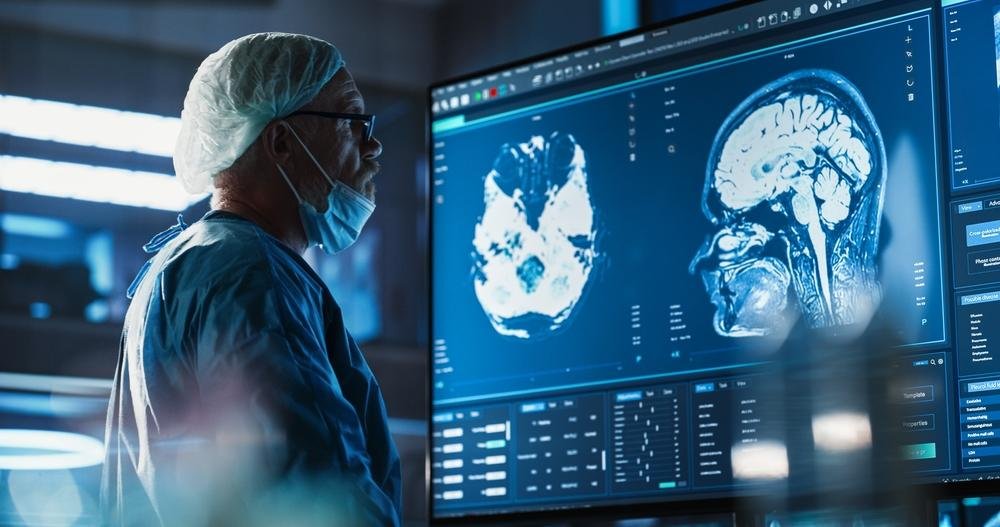Mental illness is one of the most pressing health issues of our time, affecting millions of people worldwide. With advances in neuroscience, there has been a growing interest in understanding how brain scans could be used as diagnostic tools for various mental health conditions.
Many wonder if there is a reliable brain scan test for mental health that could provide a definitive diagnosis for disorders. Including but not limited to depression, anxiety, schizophrenia, or bipolar disorder. The short answer is that while brain scans hold great promise, they are not yet a magic bullet for diagnosing mental illnesses. But let’s explore the role they currently play and what we can expect in the future.
The Role of Brain Scans in Mental Health
Brain scans have been used in medicine for decades to diagnose physical illnesses like tumors, strokes, and brain injuries. More recently, there has been significant interest in applying brain imaging technologies to mental health diagnostics. The most common types of brain scans include:
1. Magnetic Resonance Imaging (MRI):
Provides detailed images of the brain’s structure.
2. Functional MRI (fMRI):
Measures brain activity by detecting changes in blood flow.
3. Positron Emission Tomography (PET):
Uses radioactive substances to look for active brain regions.
4. Computed Tomography (CT):
X-ray images of the brain to detect structural abnormalities.
5. Electroencephalography (EEG):
Measures electrical activity in the brain to detect abnormalities in brain wave patterns.
What Brain Scans Can Tell Us About Mental Illness
Although brain scans cannot diagnose mental illness outright, they can provide valuable insights into how mental health conditions manifest in the brain. Research has shown that certain patterns of brain activity are associated with specific mental illnesses. For example:
- Depression:
Studies using fMRI have found that people with depression often exhibit reduced activity in the prefrontal cortex, the region of the brain associated with decision-making, mood regulation, and emotional processing.
- Anxiety:
Individuals with anxiety disorders tend to have heightened activity in the amygdala, the brain’s fear center. This hyperactivity may help explain the constant feelings of worry and fear that characterize anxiety.
- Schizophrenia:
Brain scans of people with schizophrenia have revealed abnormalities in brain structure, such as enlarged ventricles, as well as altered activity in regions responsible for thinking and perception.
- Bipolar Disorder:
MRI scans have shown structural differences in areas related to mood regulation and cognitive control in individuals with bipolar disorder.
These findings have the potential to improve our understanding of how mental health disorders affect the brain and may eventually lead to more accurate diagnoses and personalized treatments. However, the challenge lies in the fact that these patterns are often not unique to one specific disorder, and there is significant variability in how mental illnesses manifest across individuals.
Can Brain Scans Be Used as Diagnostic Tools?
At present, brain scans are not used as a primary tool for diagnosing mental illnesses in clinical practice. Diagnosis still relies largely on clinical interviews, self-reported symptoms, and the use of diagnostic manuals like the DSM-5 (Diagnostic and Statistical Manual of Mental Disorders). The reason for this is twofold:
1. Lack of Diagnostic Specificity:
Mental illnesses are complex and multifactorial, often involving genetic, environmental, and social factors in addition to neurological ones. The brain scans we currently have, are not specific enough to definitively diagnose a mental health disorder. For example, while brain scans can show abnormal activity in the prefrontal cortex in people with depression, similar abnormalities can occur in individuals without depression, making it hard to establish a clear diagnostic marker.
2. Cost and Accessibility:
Brain scans like fMRIs and PET scans are expensive and not always readily available. Even if brain scans could one day be used as a diagnostic tool, the cost of widespread screening would be prohibitive for most healthcare systems.
Despite these limitations, research into brain imaging for mental health diagnostics is ongoing. Advances in artificial intelligence and machine learning have shown promise in identifying more nuanced patterns in brain scans that may help predict the onset of mental illness or assess the severity of symptoms. However, we are still far from a point where a simple brain scan can diagnose conditions like depression or anxiety with the same accuracy as it detects a tumor or stroke.
Emerging Technologies: The Future of Brain Scans in Mental Health
The future of mental health diagnostics may look very different from what we see today. Several emerging technologies offer hope that brain scans could one day play a much larger role in diagnosing and treating mental illness.
1. AI and Machine Learning:
Advanced algorithms are being developed to analyze brain scans in more detail than ever before. By identifying subtle patterns of brain activity or structure, these technologies may be able to detect mental health disorders earlier and with greater precision. For example, researchers are using AI to develop models that can predict the likelihood of developing conditions like depression or schizophrenia based on brain scan data.
2. Personalized Medicine:
Brain scans could eventually help tailor treatments to individual patients. For instance, by examining how a patient’s brain responds to certain therapies or medications, doctors could adjust treatment plans to maximize effectiveness. This approach could be particularly useful for conditions like bipolar disorder, where finding the right medication often involves a lot of trial and error.
3. Neurofeedback and Brain Stimulation:
New therapies are being developed that use brain scans to guide treatments such as neurofeedback or transcranial magnetic stimulation (TMS). These treatments aim to “train” the brain to function more normally by stimulating underactive regions or calming overactive ones. Brain scans can help target the areas that need intervention, making these treatments more effective.
The Limits of Brain Scans
Despite their potential, it’s important to recognize the limitations of brain scans in the context of mental health. They are currently most useful as a research tool rather than a diagnostic one. The complexity of the brain, combined with the individual variability of mental health conditions, means that we are still far from a one-size-fits-all brain scan test for mental health disorders.
Moreover, mental illness is not purely a brain-based phenomenon. Social, psychological, and environmental factors play a crucial role in the onset and course of mental illnesses. A brain scan, no matter how advanced, cannot capture the full scope of a person’s mental health condition. Mental health diagnosis and treatment will always require a holistic approach, considering the individual’s personal history, life circumstances, and emotional state alongside any neurological findings.
Explore https://motoreview.net/ for the latest blogs.
Conclusion
Brain scans are undoubtedly a powerful tool in the quest to understand mental illness, but they are not yet ready to replace traditional methods of diagnosis. While they offer insights into how conditions like depression, anxiety, and schizophrenia affect the brain, they cannot yet provide a definitive diagnosis on their own.
If you are considering any treatments that involve brain scans or neurofeedback, it’s important to work with reputable medical providers. Be sure to find a medical imaging center you can trust. Since the quality of imaging and interpretation can significantly impact your care. With the right support and resources, there is hope for everyone to achieve better mental health.






More Stories
Is Home Health Care the Future of Wellness? Discover the Best Services in Dubai!
Advanced Kidney Care Facilities in Chennai
Role of Pain Relief in Managing Chronic Pain